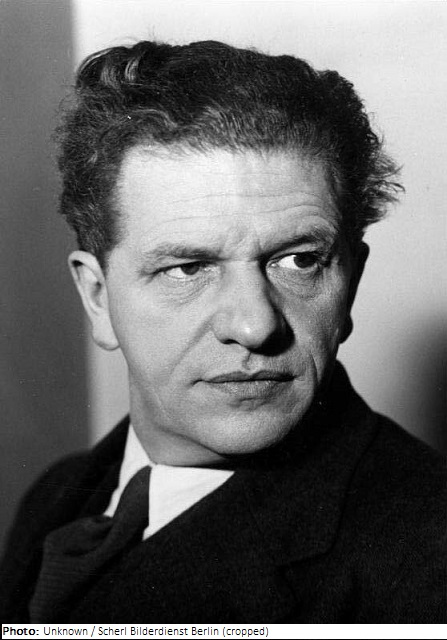
| Roles | Referee |
|---|---|
| Sex | Male |
| Full name | Hanns•Johst |
| Used name | Hanns•Johst |
| Other names | Odemar Oderich |
| Born | 8 July 1890 in Seerhausen, Stauchitz, Sachsen (GER) |
| Died | 23 November 1978 (aged 88 years 4 months 15 days) in Ruhpolding, Bayern (GER) |
| NOC |  Germany Germany |
In his youth, Johst aspired to become a missionary. He then studied medicine, German language and literature, philosophy, and art history. In 1914, he published his first one-act drama. In the following year, however, he abandoned his studies at the universities of Leipzig, München, and Wien (Vienna). After he was discharged from the army in World War I after only two months due to an unspecified illness and subsequently lived as a freelance writer and assistant director.
Johst’s early work was heavily influenced by Expressionism. He had his breakthrough as a playwright in 1917 with Der Einsame (The Lonely One) about 19th-century playwright Christian Dietrich Grabbe (1801-1836). This play already showed “völkisch” and anti-Semitic elements. Later, he turned to a more realistic style. During this period, he wrote several comedies blaming social drawbacks on the failures of Germany’s democratic constitution.
In the 1920s, Johst became one of Germany’s up-and-coming playwrights, particularly acclaimed by the political right. With the drama Schlageter, dedicated to Adolf Hitler, Johst achieved the greatest success in his career as a playwright. It deals with the Freikorps fighter Albert Leo Schlageter (1894-1923). The drama premiered on Hitler’s birthday and was staged by German theaters in more than 1,000 cities.
In 1928, Johst joined the “Kampfbund für deutsche Kultur” (Militant League for German Culture) and in 1932 the NSDAP. He became instrumental in the “Gleichschaltung” (bringing into line) of the poetry section at the Prussian Academy of Arts and in founding the Union of National Writers. He was one of the 88 writers who signed the pledge of loyal allegiance to Adolf Hitler in 1933. Two years later, Johst was appointed president of the “Reichsschrifttumskammer” (Reich Literature Chamber) and held various other posts. In the same year, he joined the SS and eventually joined the staff of the Reichsführer SS, Heinrich Himmler. Johst attended the meeting, where top SS leaders were briefed on the impending extermination war against the Soviet Union. In 1944, he was included in the “Gottbegnadetenliste” (God-gifted list) and a special list of the six most important writers compiled by Hitler.
After World War II, Johst was interned and initially classified as a “Mitläufer” (engl.: fellow traveler), later sentenced to 3 ½ years in a labor camp, but then practically rehabilitated in 1955. In the Soviet Occupation Zone, most of his works were banned. In West Germany, Johst could no longer gain a foothold as a writer and his attempt to publish a reworked book failed. Since 1952, he wrote poems under the pseudonym Odemar Oderich for a customer magazine.
| Games | Sport (Discipline) / Event | NOC / Team | Phase | Unit | Role | As | |
|---|---|---|---|---|---|---|---|
| 1936 Summer Olympics | Art Competitions |  GER GER |
Hanns Johst | ||||
| Literature, Dramatic Works, Open (Olympic) | Final Standings | Judge | |||||
| Literature, Epic Works, Open (Olympic) | Final Standings | Judge | |||||
| Literature, Lyric Works, Open (Olympic) | Final Standings | Judge |